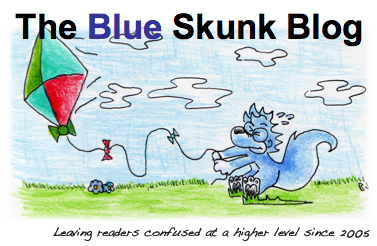
Image source
Stories in Minnesota newspapers have been reminding readers that the horrific Red Lake school shooting occurred 20 years ago. Back when school shootings did not seem like an everyday occurrence. This was a reminder that I had asked myself at the time that as a school librarian and technologist, if there were things I could be doing to help prevent such sad, sad events. I summed up my thoughts in the column I am reposting below...
The Need for Community
Head for the Edge 2005-06 #2 Library Media Connection
As I write this, Minnesotans are still in shock and mourning over the tragedy at the Red Lake School and its community. On March 21, 2005, sixteen year-old student Jeff Weise brought a gun to school and killed five students and two staff members and wounded seven more before killing himself. This was after he had earlier killed his grandfather and his grandfather’s companion in their home.
According to news reports, Jeff was considered an “outsider” in his closely knit, but impoverished community on the Red Lake reservation. He participated in online “communities” – ones that espoused violence and intolerance at nazi.org and www.abovetopsecret.com. Ones made accessible via the Internet even in this remote northern Minnesota location.
One of my first questions was how much did Jeff’s access to the Internet contribute to his terrible decisions and actions? I am sure I am not the only parent, educator or community member who wondered if he not been able to express his violent thoughts and receive support from other like-minded individuals, would he have made the choices he did?
Establishing cause and effect in incidents like these will always be speculative, and there are plenty of places at which we can point accusative fingers. Jeff’s life had been horrific. He reportedly had been abused and neglected as a child. His father committed suicide and his mother lived in a nursing home after a serious car accident. Jeff was American Indian, one of the state’s (and nation’s) most impoverished and disenfranchised ethnic minorities. And of course, the “bad seed” theory always surfaces as well. Jeff did not leave a note explaining why he took the actions he did, leaving us only sadly speculating.
One factor might be that Jeff, like all kids, looked for and did not find a sense of community “on the res.” When he could not find like-minded, sympathetic, caring individuals around him physically, he looked elsewhere and found it online.
So what does this have to do with technology, libraries and schools? We can ask how and why was Jeff “allowed” to visit and interact with others on web hate sites? Do the dangers and risks of such groups outweigh the useful, productive resources available on the web? Who was monitoring Jeff’s Internet use? Were the adults in his life even aware such vicious places on the Internet exist? Important questions, to be sure, but to me, Jeff’s Internet use ought to be considered more symptomatic than causal.
Most kids look for and find “communities” with values that are life affirming and socially responsible. Boy and Girl Scouts, 4-H clubs, church groups, and both formal and informal groups revolving around special interests such as bicycling, hunting, literature, or sports play a big role in most young people’s lives as they grow up. Schools provide opportunities for socialization through athletics, music, drama, newspapers, business or art clubs. In these groups, young people learn not just about personal interests, but also about one’s fellow students and mentors and why they are worth caring about. And they are where kids often find that others care about them as well.
In our efforts to improve our schools and reduce school expenditures, the “extra-curricular” activities are often first on the chopping block. Politicians and taxpayers see music, arts and athletics as superfluous. The “basics” are reading, writing, math and other purely classroom pursuits. Guidance counselors, teacher-librarians, coaches and club sponsors are nice extras only tangentially related to the real purpose of school. Sigh…
How many of us as teacher-librarians or technology coordinators make a conscious effort to create “communities” for our own students, especially for those kids who do not seem to have much success with the traditional organizations? Do you have a “geek squad” in which members gain self-esteem by helping students and staff with technology problems? Do you have library volunteers who watch the circulation desk, help re-shelve materials and create displays? As a former member of the “projector sector” – students who assisted technology-challenged teachers set-up 16mm projectors in my high school, I personally recognize how important such a seemingly small thing helped me establish a sense of belonging and camaraderie in school. And it’s why I, as an educator, encourage all of us to enlist the aid of kids for whom football or band is not exactly their thing.
I am not so naïve to believe that there is a single cause of school violence or a single way to prevent it. But St. Paul Pioneer Press reporter David Hanners wrote, “In the online world where he felt most at home, Jeff Weise has gained more attention in death than he ever did in life.” We all crave attention. What small part can we as teacher-librarians and technologists do to make sure the Jeffs in our schools get that attention in positive ways? Are we helping create “communities” for everyone? You never know what one thing may make a difference.
 Tuesday, March 25, 2025 at 09:57AM
Tuesday, March 25, 2025 at 09:57AM 








